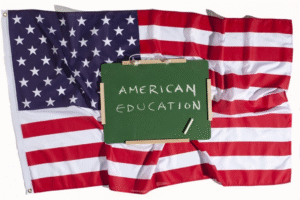
1.
Education is the foundation of every modern society. It empowers individuals to think critically, make informed decisions, and contribute meaningfully to their communities. From learning basic literacy to mastering complex skills, education helps people reach their full potential. Without it, progress halts and inequality grows. Every developed nation has invested in higher education to ensure growth and stability. A well-educated society is always better prepared for challenges.
2.
Modern education goes beyond textbooks. It includes digital learning, real-world problem-solving, and skill development. Today’s students must not only memorize facts but also apply knowledge creatively. Soft skills like communication, teamwork, and emotional intelligence are equally important. A good education system prepares students for life—not just exams. This shift in approach helps produce capable, confident, and adaptable individuals.
3.
Technology has revolutionized the education sector. Online courses, e-books, and virtual classrooms have made learning accessible to more people. Platforms like Khan Academy, Coursera, and YouTube offer free education to millions. During the COVID-19 pandemic, digital learning became the new normal. Now, blended learning (online + offline) is shaping the future of education. However, access to the internet and devices remains a challenge for many.
4.
Teachers play a crucial role in shaping minds. A passionate and trained teacher can inspire generations. They don’t just deliver lessons—they build character, spark curiosity, and mentor students through challenges. Governments must invest in teacher training, fair salaries, and respect for the profession. Without empowered educators, no education system can thrive. A great teacher leaves a lifelong impact.
5.
Education starts at home. Parents are a child’s first teachers. Teaching values, discipline, and the importance of learning begins early in life. When parents support education, children perform better in school. A strong partnership between home and school creates a powerful support system for children. Family involvement must be encouraged to build strong educational foundations.
6.
Higher education opens doors to specialized knowledge and career opportunities. Universities, colleges, and vocational institutions prepare students for the job market. However, rising tuition fees and student debt are becoming global issues. Affordable education is essential to ensure equality and access. Governments and private sectors must work together to offer scholarships and support systems for students in need.
7.
Primary and secondary education are critical stages. These are the years when basic concepts, habits, and skills are formed. Schools must provide a safe, inclusive, and creative environment. Emphasis should be placed on holistic development—academics, sports, arts, and moral education. A well-rounded student becomes a responsible adult. The foundation must be strong for the future to be secure.
8.
Education is also a tool for social change. It breaks the cycle of poverty, reduces crime, and promotes gender equality. When girls are educated, societies become healthier and more prosperous. Literacy increases civic participation, awareness, and respect for others. Education unites people, builds empathy, and reduces hatred. It’s one of the most powerful weapons to transform the world.
9.
Inclusive education is essential. Every child, regardless of ability, background, or identity, deserves quality education. Schools must accommodate children with disabilities, support marginalized communities, and create equal opportunities for all. Diversity in classrooms promotes understanding and prepares students for real-world interactions. An inclusive system reflects a just society.
10.
Practical skills are becoming more important than ever. Education should prepare students for real-life situations—how to handle finances, job interviews, mental health, and social responsibilities. Life skills are just as important as academic knowledge. Curriculum must evolve to reflect real-world demands. Skill-based learning enhances employability and confidence.
11.
Education is a lifelong journey. Learning doesn’t stop after school or university. Adults continue to learn through training, reading, and experiences. With changing technology and industries, continuous learning is necessary for career growth. Lifelong learners stay relevant, curious, and mentally active. Encouraging this mindset keeps society evolving and improving.
12.
Governments have a duty to ensure free and fair access to education. Budget allocations, infrastructure, teacher availability, and policy planning must all align to create a strong education system. Education should never be a privilege for the few—it must be a right for all. Political will and public support can make universal education a reality.
13.
Students themselves hold power to shape their futures. Motivation, discipline, and curiosity are keys to success. While systems and teachers play a role, self-learning habits set students apart. Time management, goal setting, and resilience should be taught early. Education is a gift—but using it wisely is a personal responsibility.
14.
Global education rankings show huge differences between countries. Nations that invest in research, innovation, and teacher training consistently outperform others. Learning from best practices and successful education models can help improve weaker systems. International cooperation in education can lift global standards and create shared progress.
15.
In conclusion, education is more than a school system—it’s a way of life. It builds character, shapes futures, and transforms societies. Every student educated is a step toward a better tomorrow. Whether it’s a child in a village or a graduate in a city—education gives hope. Investing in education is investing in humanity. The future depends on what we teach today.






